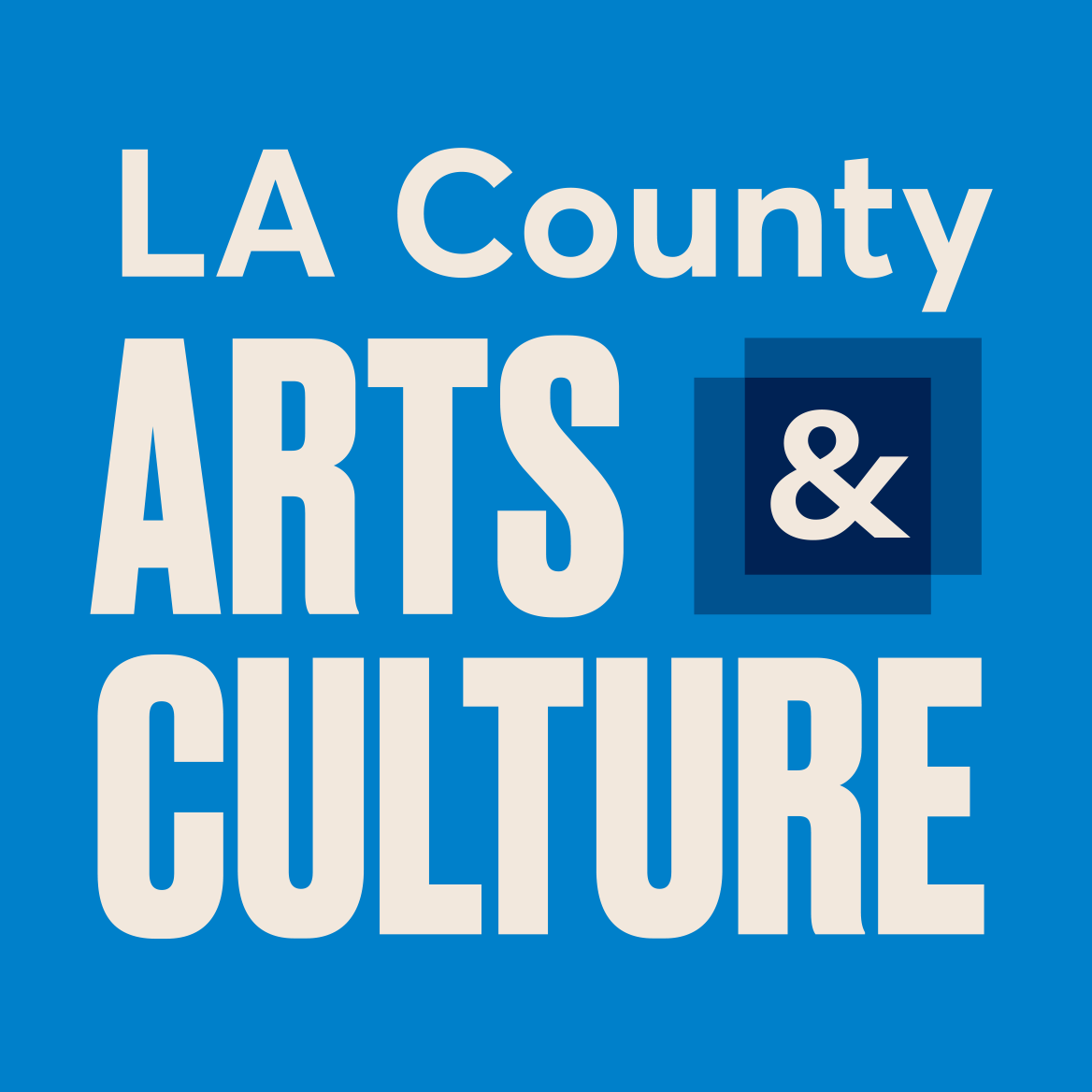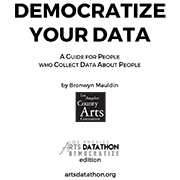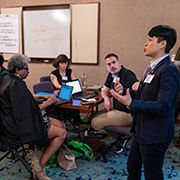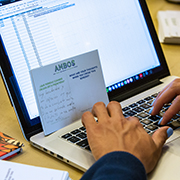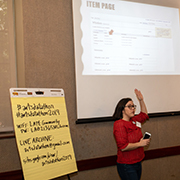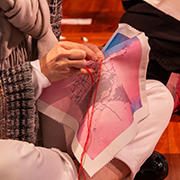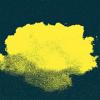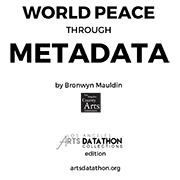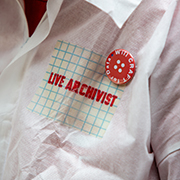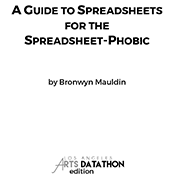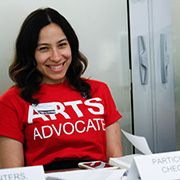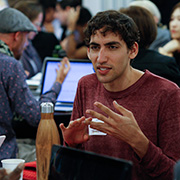Since 2017, the annual Arts Datathon has brought together arts administrators, artists, educators, data scientists, students, community advocates, researchers, civic technologists, and others to explore how we can use data to improve access to the arts. This event is for all and open to the public.
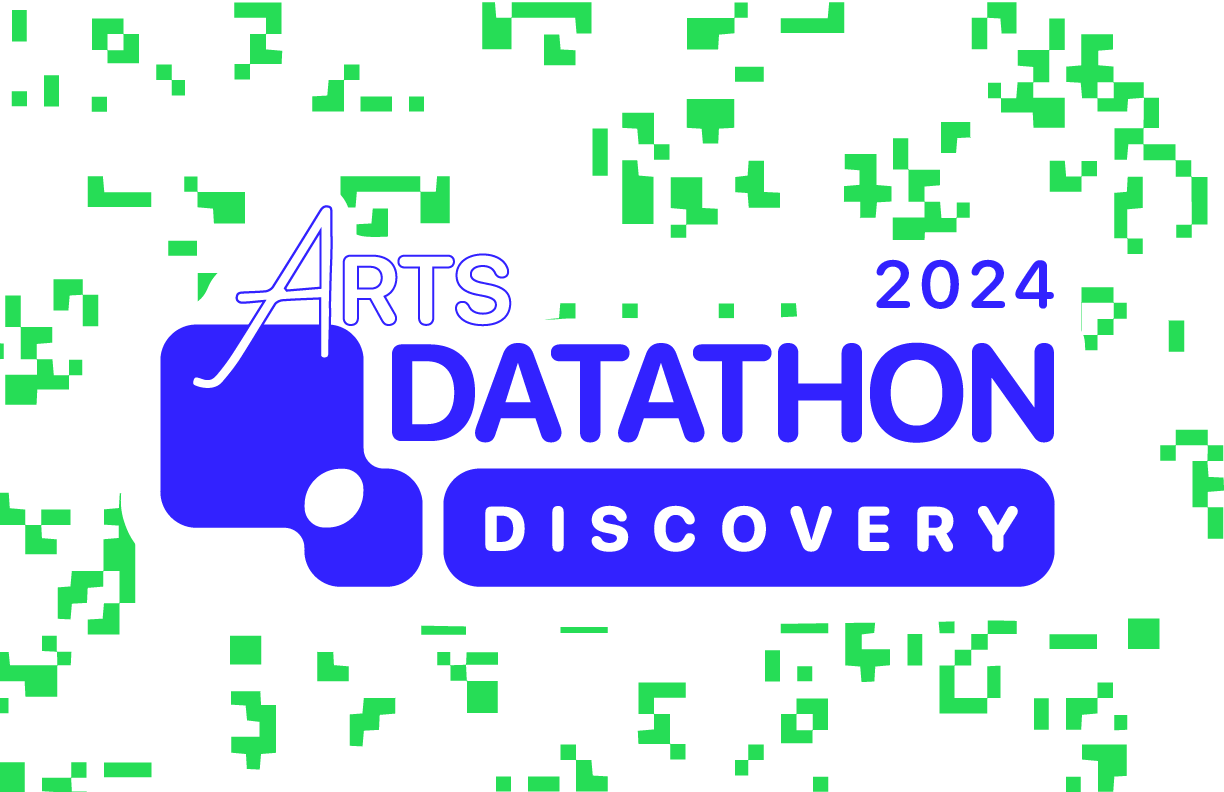
The Arts Datathon took place on Tuesday, May 7, at Inner-City Arts, centering around the theme of "Discovery." Participants spent the day learning new ways of engaging with data in four breakout sessions: Anyone Can Map! A Civic Art Mapathon (slides and mapping cheat sheet); Artful Narratives: Learning StoryMapping With Public Art Data (session materials); Hacking the Prompt: Using AI to Analyze and Visualize Data (slides and session guide); and The Labor of Looking (session guide).
We also began building a map of LA County’s Civic Art Collection using OpenStreetMap.
Photos

Follow your data's Footsteps Zine
Thank you to all our Co-Sponsors

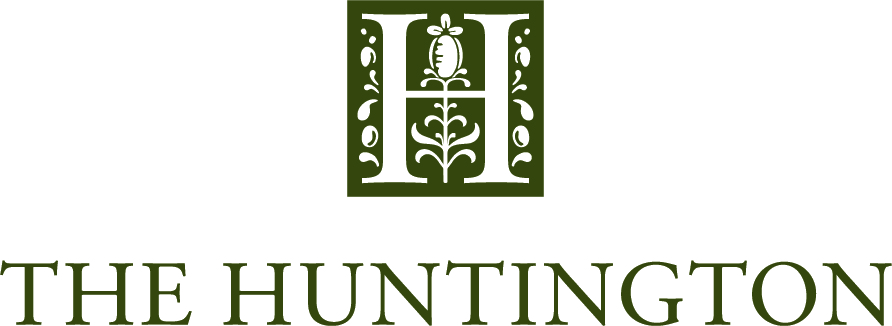

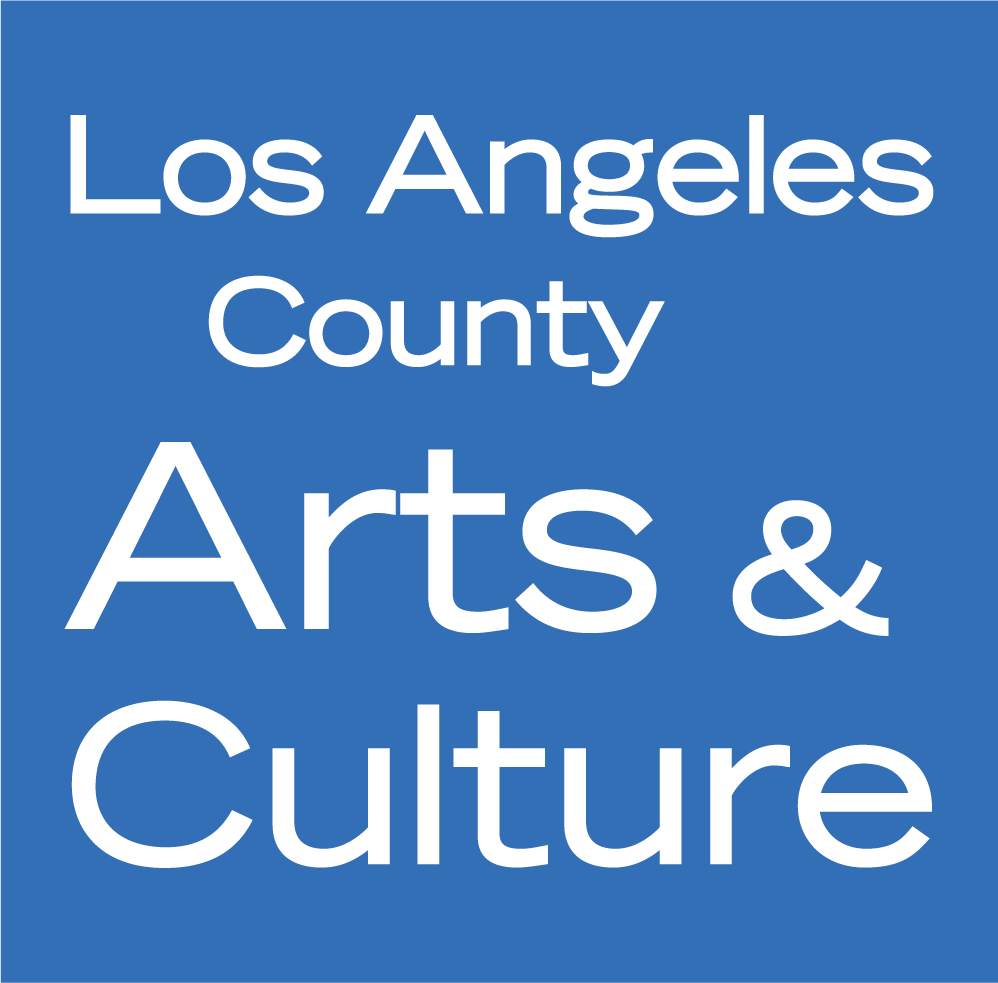
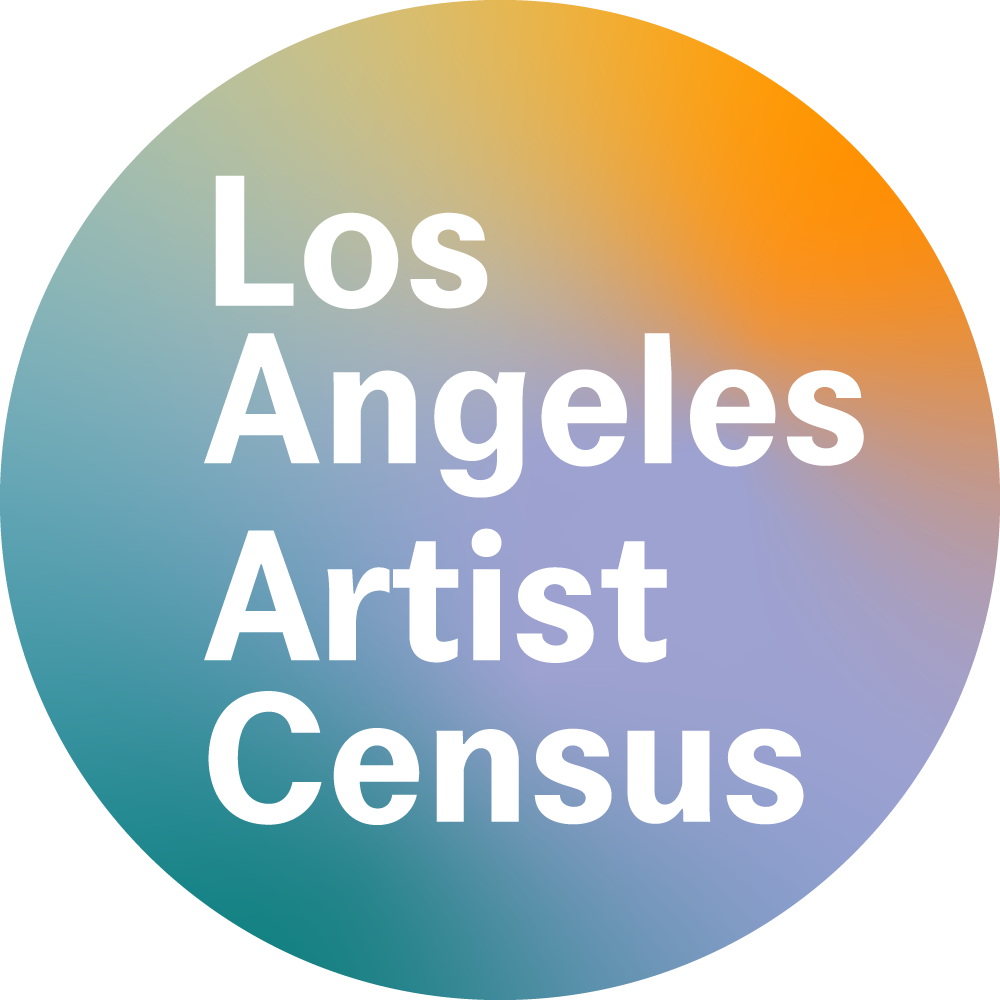

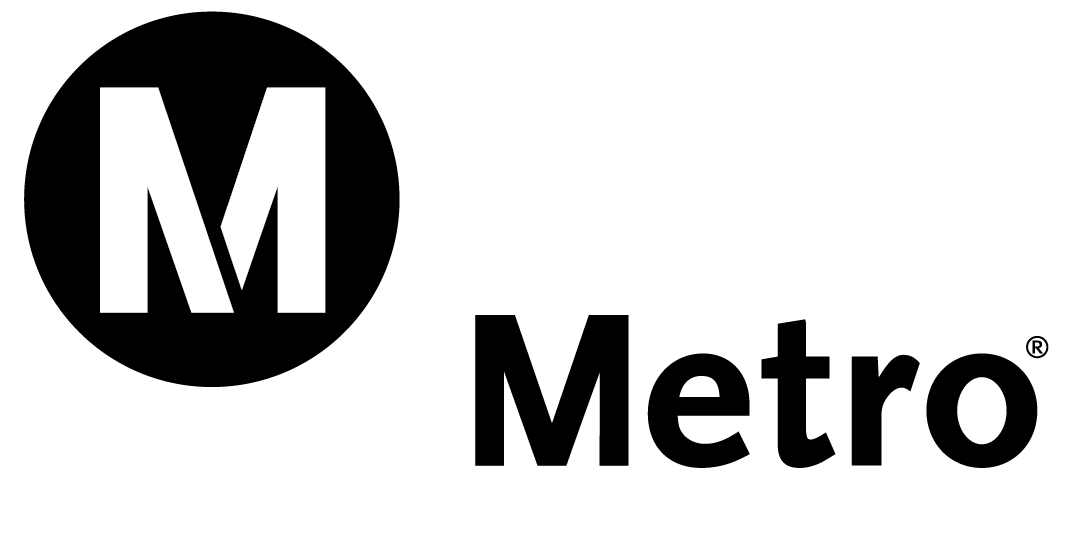
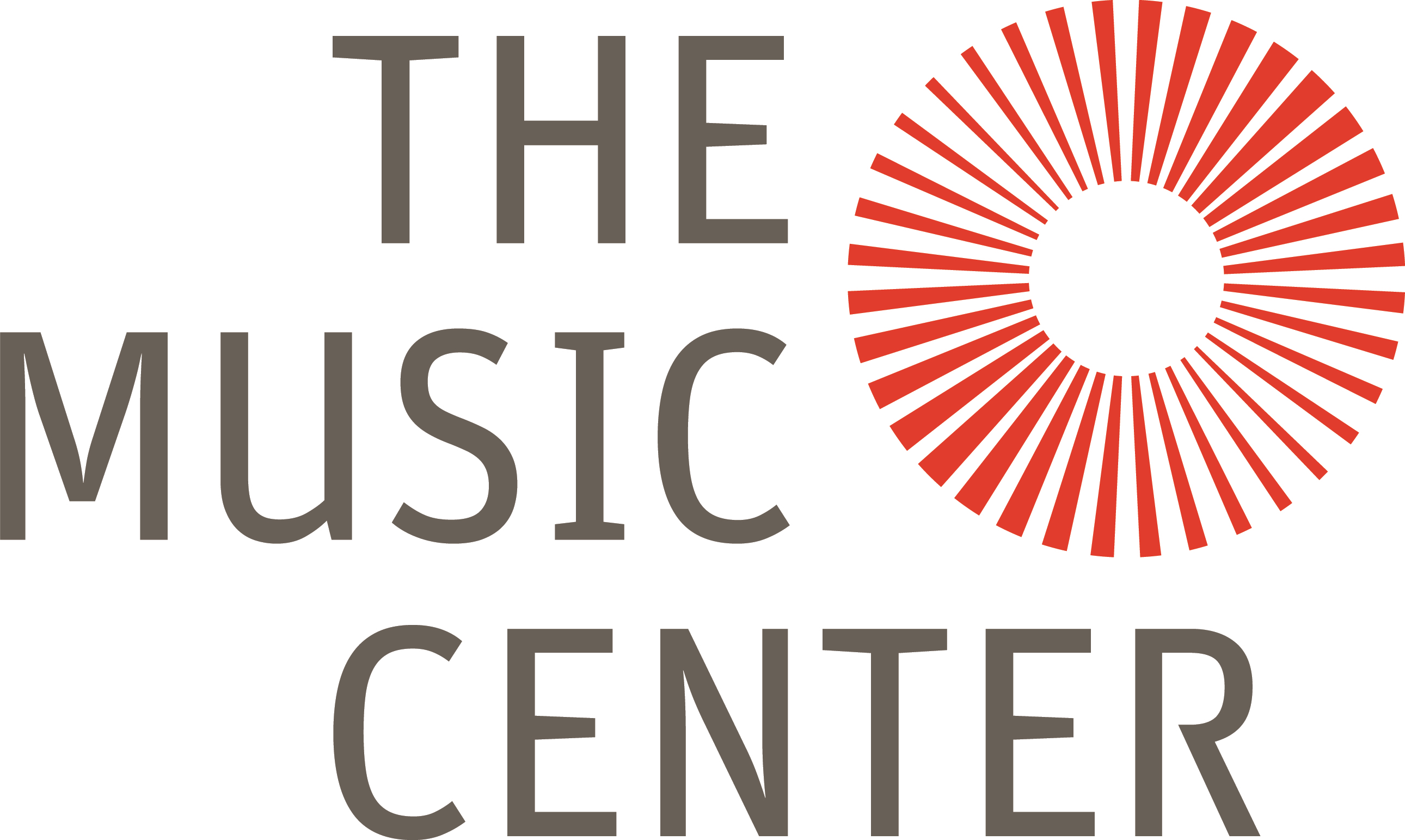

The Arts Atlas Datathon took place on Thursday, April 27, at Plaza de la Raza, focused on using geographic data. Participants spent the day exploring LA County's Arts and Culture Needs Assessment website and dataset, in three breakout sessions: Using Geography for Arts and Culture Narrative Building and Advocacy (slides); Measuring Access to Government Funded Arts (slides); and Building Partnerships for Equity with Geography (slides).
We also began building a crowdsourced map of arts and culture locations across LA County. Add your favorite venues, organizations, events, and places where you engage with the arts.
Photos

From Arts to Zip Codes Zine |
Discover more open data about arts and culture in LA County on the County's Open Data Portal!
Thank you to all our co-sponsors!




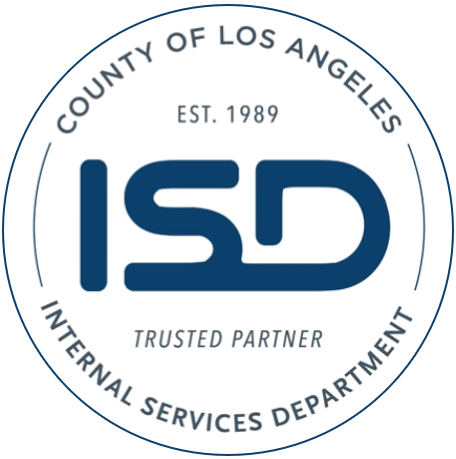



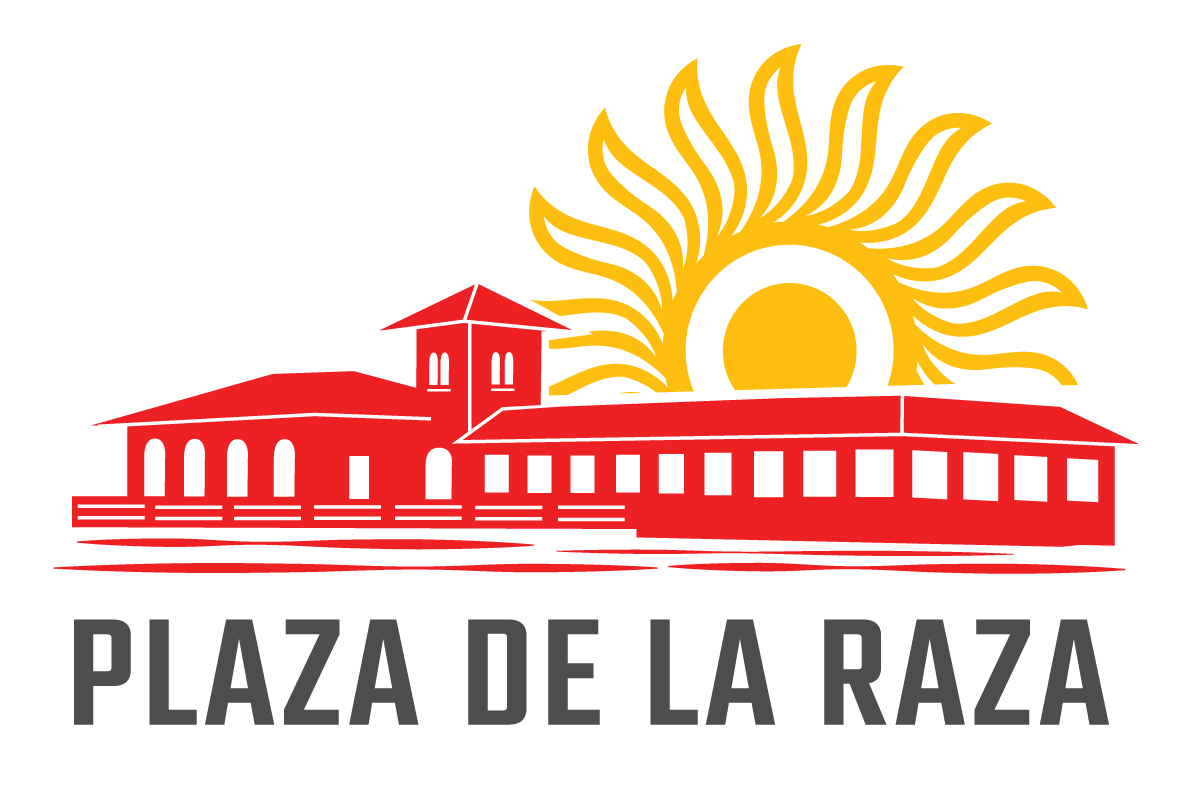

Arts Datathon: Storytelling took place on Thursday, August 12 from 9AM to Noon on Zoom. We focused on ways to use data from the LA County Arts Ed Profile and other sources to talk about how we experience, value, and utilize arts education. There were three breakout sessions, for K-12 educators, advocates, and youth. You can watch recordings of the opening and closing plenaries - including our panel discussion - below. For additional materials, please visit the Living Archive.
Resources and Recordings
Program
Arts Datathon: Storytelling began with a panel discussion about why it is so important to have accurate data about the quantity, quality, and equity of arts education in this moment. Meet our plenary session panelists:
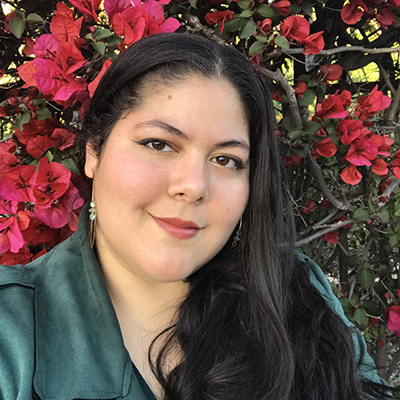 Danielle Galván Gomez is a Los Angeles based visual artist, writer, and cultural worker who has been a part of many arts organizations, including museums, community art centers, and artist-led projects. A former MOCA Apprentice, Getty Multicultural Intern, LACMA Fellow, and Youth Advisory Council member at the LA County Department of Arts and Culture and the Snap Foundation, Danielle has worked and developed her praxis in spaces across Los Angeles. She believes that a conscious art, cultural, and social practice should serve as an ethical and intermediary force between recorded and alternative histories, the communities that these histories affect, and the world-building futurism of a creative vision.
Danielle Galván Gomez is a Los Angeles based visual artist, writer, and cultural worker who has been a part of many arts organizations, including museums, community art centers, and artist-led projects. A former MOCA Apprentice, Getty Multicultural Intern, LACMA Fellow, and Youth Advisory Council member at the LA County Department of Arts and Culture and the Snap Foundation, Danielle has worked and developed her praxis in spaces across Los Angeles. She believes that a conscious art, cultural, and social practice should serve as an ethical and intermediary force between recorded and alternative histories, the communities that these histories affect, and the world-building futurism of a creative vision.
 Sarah Lyding is Executive Director of The Music Man Foundation, also known as The Meredith and Rosemary Willson Charitable Foundation. Under her leadership, the Foundation launched a music therapy grant program for Southern California-based organizations and supports outstanding music education programs across the country. Ms. Lyding cultivates meaningful relationships with partner organizations in fulfillment of the Foundation’s mission to support programs which use music to improve children’s lives. Before joining The Music Man Foundation in 2017, she was the first staff member for The Sheri and Les Biller Family Foundation, where she worked for nearly 10 years on programs such as BankWork$TM and the Social Impact Theatre opportunity. Prior to her work with foundations, she led fundraising efforts at some of Southern California’s preeminent performing arts organizations including Pasadena Playhouse and Center Theatre Group. Ms. Lyding also serves on the Board of Directors of Boston Court Pasadena.
Sarah Lyding is Executive Director of The Music Man Foundation, also known as The Meredith and Rosemary Willson Charitable Foundation. Under her leadership, the Foundation launched a music therapy grant program for Southern California-based organizations and supports outstanding music education programs across the country. Ms. Lyding cultivates meaningful relationships with partner organizations in fulfillment of the Foundation’s mission to support programs which use music to improve children’s lives. Before joining The Music Man Foundation in 2017, she was the first staff member for The Sheri and Les Biller Family Foundation, where she worked for nearly 10 years on programs such as BankWork$TM and the Social Impact Theatre opportunity. Prior to her work with foundations, she led fundraising efforts at some of Southern California’s preeminent performing arts organizations including Pasadena Playhouse and Center Theatre Group. Ms. Lyding also serves on the Board of Directors of Boston Court Pasadena.
 Dr. Sheila Reamer is an educator, passionate about teaching and music. She has had the privilege of uniting the two disciplines through her work as an elementary teacher, English Language Arts resource coach, and vocal music teacher in Torrance Unified School District. Her advocacy work in the arts in her school district began with her opportunity to be both a delegate and innovator with Arts for LA. Her most personal expression in the arts occurs every Sunday as she shares her love of music at Immanuel Baptist Church, playing the piano. Using her foundation of education from the University of Southern California and all she has learned from her students through the years, she is continuing her effort in seeking equity in education for diverse student populations and opportunity in the arts to enrich the educational experience for all learners.
Dr. Sheila Reamer is an educator, passionate about teaching and music. She has had the privilege of uniting the two disciplines through her work as an elementary teacher, English Language Arts resource coach, and vocal music teacher in Torrance Unified School District. Her advocacy work in the arts in her school district began with her opportunity to be both a delegate and innovator with Arts for LA. Her most personal expression in the arts occurs every Sunday as she shares her love of music at Immanuel Baptist Church, playing the piano. Using her foundation of education from the University of Southern California and all she has learned from her students through the years, she is continuing her effort in seeking equity in education for diverse student populations and opportunity in the arts to enrich the educational experience for all learners.
Descriptions of the three breakout sessions:
Diving for District Data: Leveraging Existing Data Sources and Creating Your Own
Learn how to use lenses of inquiry and equity to mine existing arts education data and create your own surveys to support your arts education programs. You’ll gain skills and knowledge to make the case for arts education and support decision making with district administrators and key stakeholders. All school and district community members are welcome.
Data + Stories = Advocacy
Learn how to find data that helps you tell compelling stories to advocate for arts education. Each participant will leave the session a draft public comment that incorporates both their personal experience and data from the Arts Ed Profile. This session is open to all.
Youth Data Storytellers
Explore how to use data to build on your arts education experiences to tell your personal story, through letters and poetry. This session is limited to youth ages 16 to 24. Youth participants may be eligible for a stipend. Contact research@arts.lacounty.gov for more information.
Datathon Partners and Sponsors
Arts Datathon: Storytelling is made possible by:
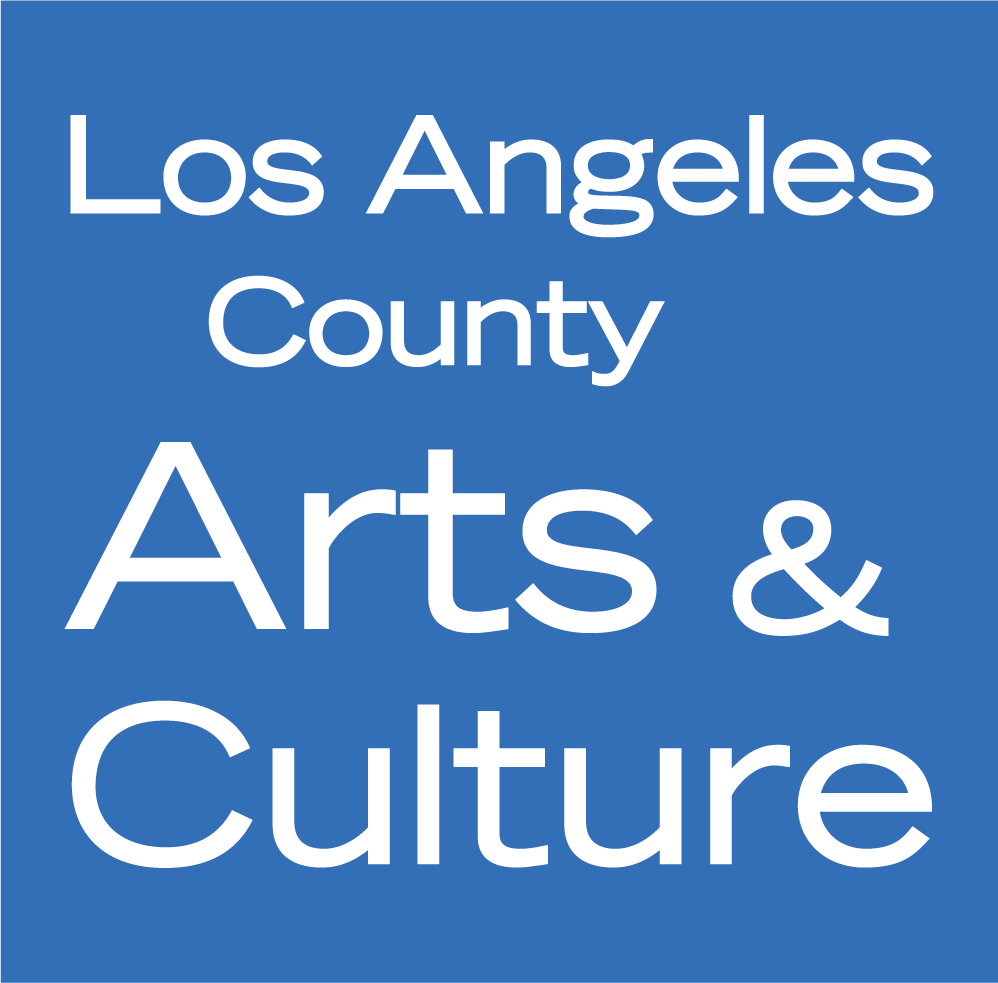

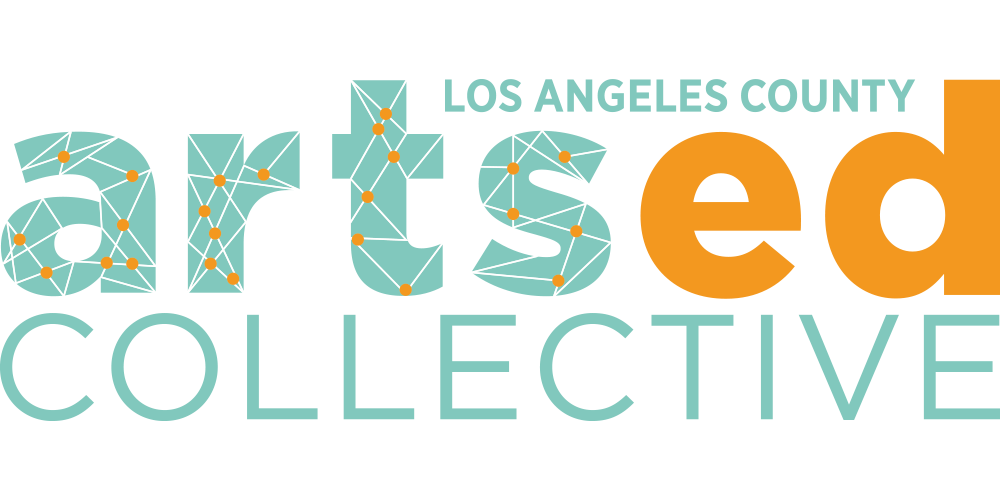

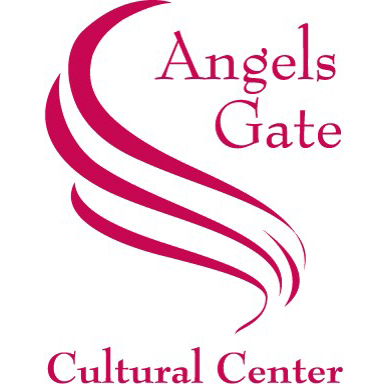
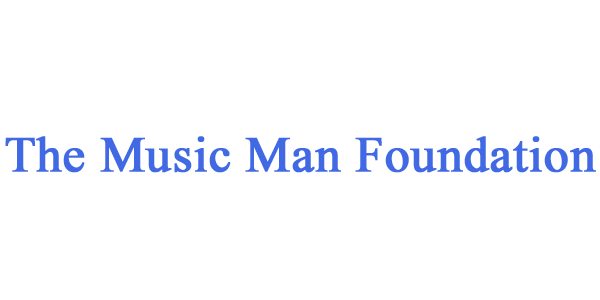
Learn all about our previous Arts Datathons below:
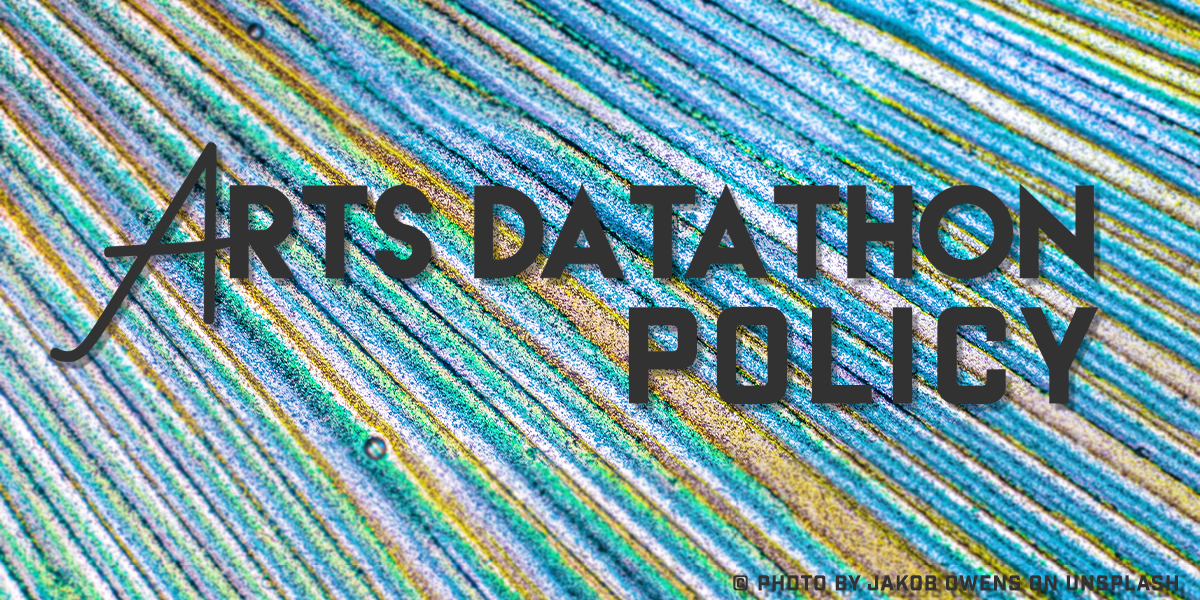
Arts Datathon: Policy was set explore the role of data in making public policy, with four different tracks to choose from: Data Dreams at the LA Phil, Arts Ed Data Resources and Skill Building, What Can I do with my Data?, and Mapping Poets: the Cartopoets Project.
Arts Datathon: Policy was cancelled due to the COVID-19 Pandemic. This information is provided for archival purposes only.
Datathon Partners and Sponsors
Arts Datathon: Policy was sponsored by:

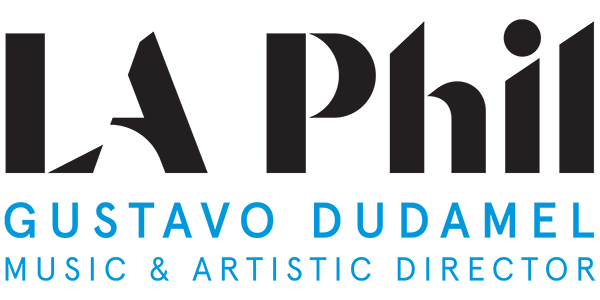


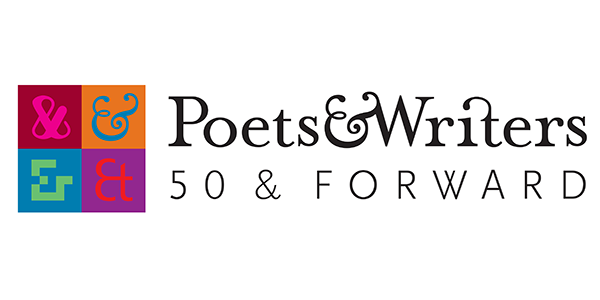
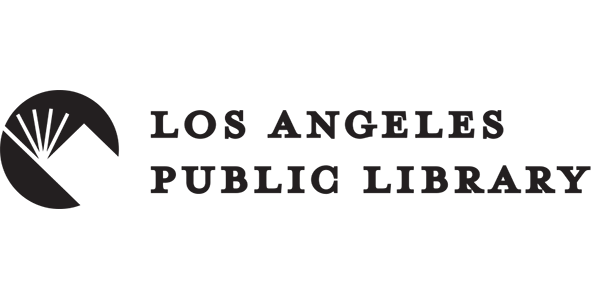
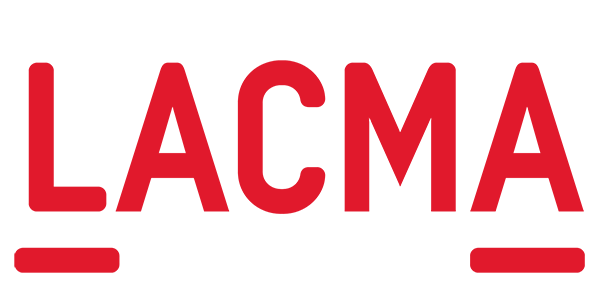
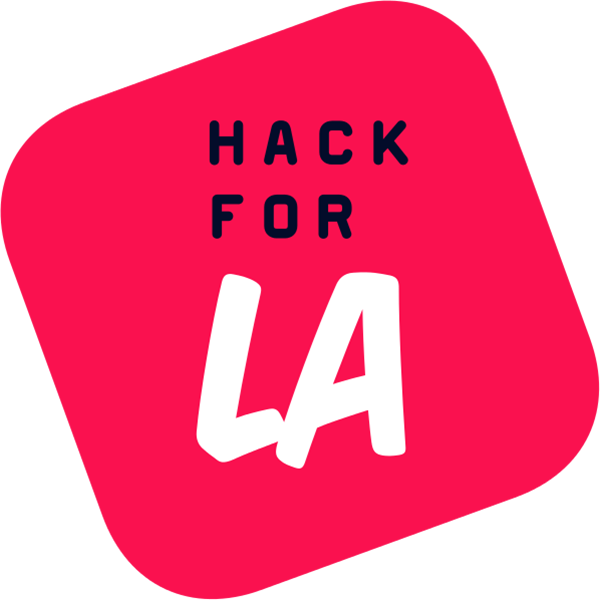
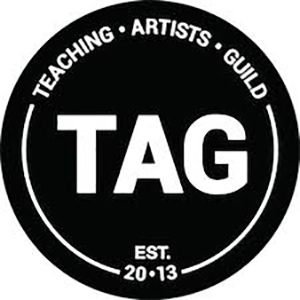
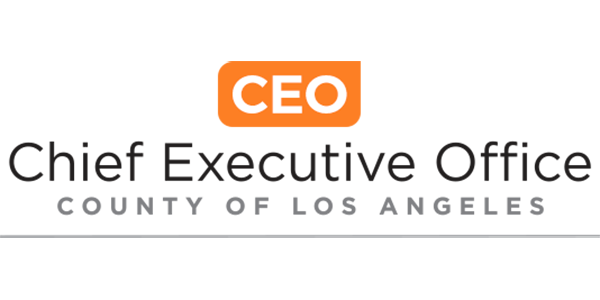
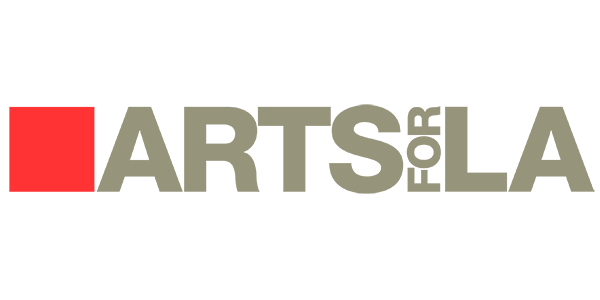

About
Arts Datathon: Democratize took place on Wednesday, April 3, 2019, at the LA Public Library and focused on democratizing arts data. Participants spent the day working in one of four project tracks, including: Data Science for Arts Education, Public Art on WikiData, Border Data, and Visualizing Data Through Craft. For Arts Datathon: Democratize, the team of live archivists returned, interviewing participants, taking photos, and gathering information throughout the day for this year's online archive.
Democratize Your DataA zine created specifically for Arts Datathon: Democratize. |
Photos

Project Tracks
Data Science for Arts EducationData scientists, arts administrators, and educators explored research questions and potential methods to advocate for equity in arts education in LA County public schools. |
Border DataParticipants explored experiences of the California/Mexico border through qualitative data collected from people as they cross, as part of Tanya Aguiñiga's AMBOS Project. |
Public Art on WikidataParticipants learned about linked open data—what it is and how it works—and will contribute information about public art in LA County to Wikidata. |
Visualizing Data Through CraftParticipants embroidered geodata about their favorite arts and culture locations in LA County on fabric printed with a map. |
Resources
2019 Live ArchiveExplore documentation of Arts Datathon: Democratize created by a team of live archivists as well as datathon participants. |
About
Arts Datathon: Collections took place on April 27 at Bob Hope Patriotic Hall. Focusing on collections data, participants participated in several tracks, working on projects related to civic art, street art, veterans memorabilia, music, cultural assets, and historic architecture. Also, as a part of Arts Datathon: Collections, a team of live archivists worked to archive the event as it happened, publishing the results in an open-source online archive.
World Peace Through MetaDataA zine created specifically for Arts Datathon: Collections. |
Photos
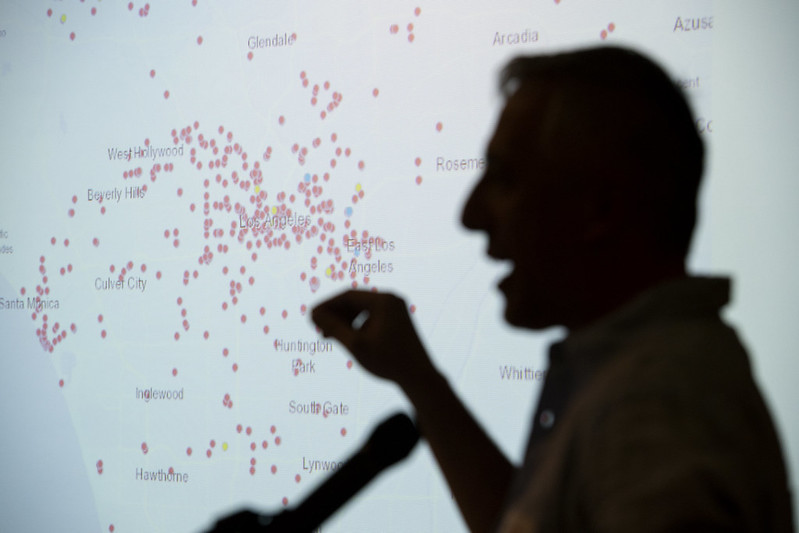
Resources
2018 Live ArchiveExplore documentation of Arts Datathon: Collections that was generated by a team of live archivists as well as datathon participants. |
About
On Saturday, April 22, 2017, more than 100 participants assembled at The Reef, the downtown LA campus of Claremont Graduate University's Center for Business and Management of the Arts, to spend the day exploring how data can be used to improve access to the arts for all ten million residents of LA County.
A Guide to Spreadsheets for the Spreadsheet-PhobicA zine created specifically for Arts Datathon: Access. |
Photos
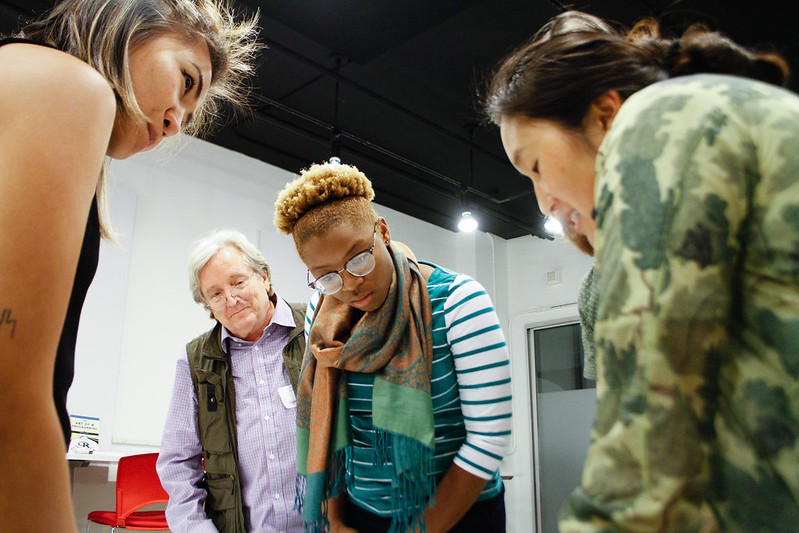
Resources
Final ReportWhat the Datathon was and how it was organized. |
ToolkitA toolkit offering tips for any organization or group interested in hosting its own Datathon. |
